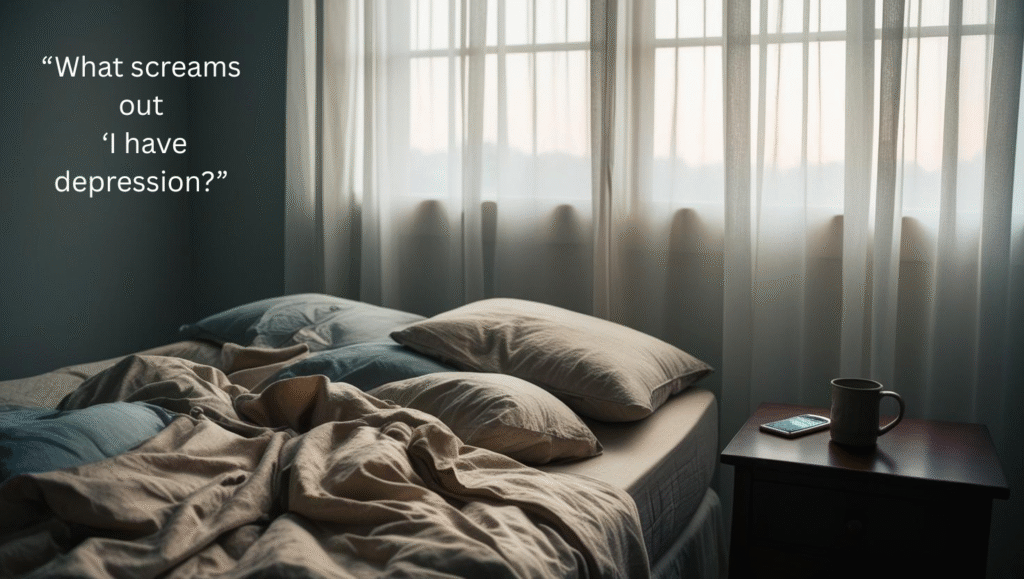
Subtle Signs to Recognize:
- Neglecting Daily Tasks: Leaving your dishes in the sink or laundry not done can be more than procrastination; it might indicate a lack of motivation, so common in depression.
- Avoiding Communication: Ignoring text messages or phone calls, not out of rudeness, but because responding feels like it’s ‘too much’.
- Sleep Disturbances: Experiencing insomnia or oversleeping can disrupt daily life and are often linked to depressive states.
- Changes in Appetite: Eating too much or too little, without a clear reason, can be a response to emotional distress.
- Physical Ailments: Aches, pains, headaches, or digestion issues might be because of underlying depression.
Understanding Hidden Depression:
It’s important to recognize that depression doesn’t always fit the stereotypical mold. Many individuals maintain faking normalcy, a phenomenon sometimes referred to as “smiling depression.” They might appear cheerful and successful externally while battling turmoil on the inside. Hiding your true issues can make it challenging for both the individual and those around them to acknowledge the need for help.
Seeking Support:
If you or someone you know exhibits these subtle signs, it’s essential to approach the situation with empathy and understanding. Encouraging open conversations and seeking professional guidance can make a significant difference. Remember, acknowledging the problem is the first step toward healing.
For more information and resources on mental health, consider visiting the National Institute of Mental Health or SAMHSA.NIMH
Note: This article is for informational purposes and does not replace professional medical advice.

Leave a Reply